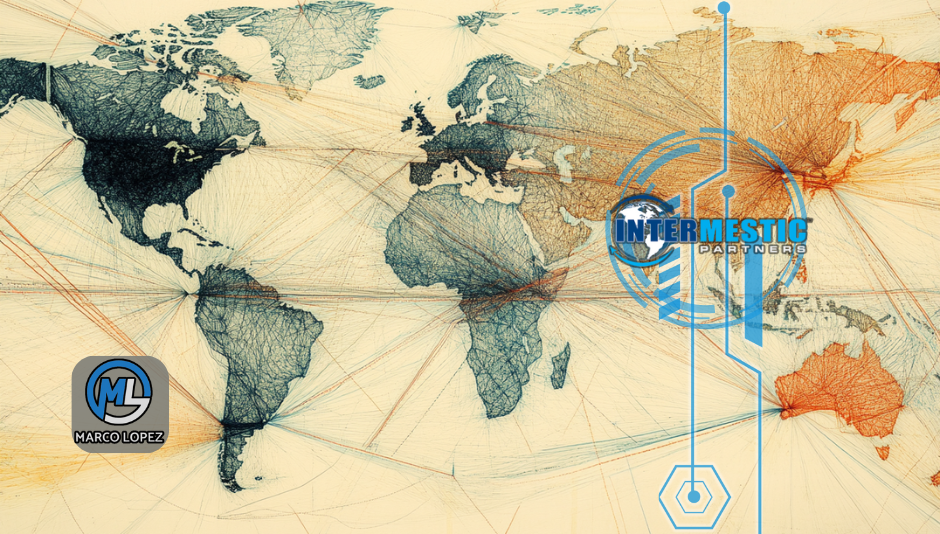How Tariffs Disrupt Supply Chains—and Kill Local Jobs
- Marco Lopez

- Jun 11, 2025
- 2 min read

Tariffs are often sold as protection for domestic industries. But behind the political soundbites lies a painful reality: tariffs disrupt supply chains, inflate prices, and cost local jobs.
As former mayor of a border city in Arizona, Director of the Arizona Department of Commerce, and Chief of Staff at U.S. Customs and Border Protection, I’ve witnessed how deeply trade policies shape both global commerce and local economies. Today, as CEO of Intermestic Partners—an international business advisory firm founded in 2011 that specializes in cross-border trade and development—I work directly with companies navigating these disruptions.
What Are Tariffs—And Why Are They Used?
A tariff is simply a tax on imported goods, designed to:
Protect domestic industries
Safeguard local jobs
Combat unfair foreign trade practices
Tariffs can be applied as:
Specific tariffs (fixed amount per unit)
Ad valorem tariffs (percentage of product value)
Hybrid models combining both
While the theory sounds straightforward, the reality is far more damaging.
How Tariffs Break Supply Chains
In today’s global economy, supply chains span multiple countries. When tariffs are imposed:
Imported materials become more expensive
Production costs rise
Companies either raise prices or seek cheaper offshore production
A 2018 National Bureau of Economic Research study found that U.S. tariffs directly contributed to manufacturing job losses, not gains.
Industries from auto manufacturing to electronics have seen costs surge due to tariffs on key inputs like steel, aluminum, and semiconductors—forcing some companies to move production overseas entirely.
The Local Job Loss Consequences
Higher costs often lead to:
Reduced output
Automation replacing workers
Job cuts and offshoring
The very communities tariffs claim to protect are often hit hardest, facing unemployment, lower wages, and long-term economic decline.
Long-Term Damage: Stifled Growth & Innovation
Tariffs don’t just harm supply chains—they slow business growth:
Firms avoid new investments due to higher costs.
Innovation suffers as industries focus on survival, not advancement.
Communities experience persistent job shortages and economic stagnation.
As the Economic Policy Institute describes, tariff benefits are often short-lived, while losses are gradual, compounding, and deeply harmful.
Smarter Alternatives to Tariffs
Rather than blunt-force tariffs, governments have better tools to support domestic industries:
🎯 Diplomacy Over Punishment
Negotiate fair-trade deals
Resolve disputes through international organizations
💡 Invest in Competitiveness
Workforce training and education
Research & development incentives
Infrastructure upgrades
💰 Targeted Subsidies (Used Carefully)
Direct aid to struggling sectors
Encourage innovation and competitiveness without harming supply chains
The Bottom Line
Tariffs may sound tough—but their real-world impact often backfires. Supply chain disruptions, rising consumer costs, lost jobs, and weakened competitiveness are the real consequences.
At Intermestic Partners, we help top national and international companies navigate these challenges by building resilient supply chains and smarter cross-border strategies.
Let’s Build Smarter Trade Policies
The solution isn’t isolation—it’s strategic collaboration that protects workers, strengthens industries, and fosters sustainable growth.
Partner with Intermestic Partners to develop forward-looking trade strategies that work—for business, for workers, and for the economy.
.png)




Tariffs increase production costs, disrupt global supply chains, and make it harder for local industries to stay competitive. When imported materials become expensive, manufacturers reduce output or move operations overseas, leading to job losses. For insights into adapting production strategies and maintaining efficiency in tough trade conditions, the handbook for embroidery digitizing professionals offers valuable guidance on sustaining quality and productivity.
This article offers a clear and insightful perspective on the unintended consequences of tariffs. Disrupting supply chains not only affects global trade but also directly impacts local employment and economic stability. It’s crucial for policymakers to consider these ripple effects. While exploring more about digital ecosystems and online platforms, I came across Laser247—an engaging space where users can play games, earn rewards, and unwind. It’s interesting how both economic policies and digital platforms shape the way we live and work today. Great read—thank you for sharing!
This is a powerful and well-explained piece on the real-world impact of tariffs. The way you’ve connected disrupted supply chains to job losses makes the issue feel immediate and personal. Economic policies often seem distant, but your breakdown makes it accessible. While diving into such serious topics, I also explore platforms like the mahadev book app during downtime—it’s a refreshing digital space that offers light engagement when I need a mental break. Thanks for raising awareness on such an important issue!
This was a really eye-opening read. It's frustrating how tariffs, which are supposed to protect domestic industries, can end up doing the opposite by disrupting supply chains and costing local jobs. The economic ripple effects are real—I’ve even seen prices rise on electronics. It made me rethink my spending habits, and I recently decided to sell iPhone devices we had lying around to offset some of those rising costs. Every little adjustment counts in today’s economy.